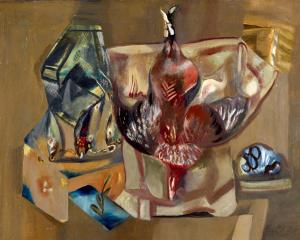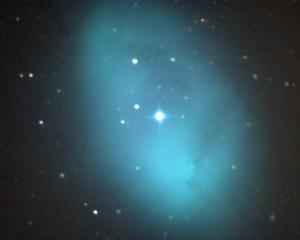Cameron Monteath is sitting at the piano in the entranceway of his Opoho home, contemplating a musical path that he and his mum, Susan, suspect began in the first few weeks of his life.
"I think I gave music to myself,'' the 14-year-old pianist, violinist and composer says as a wide smile breaks across his face.
"It wasn't a case of my parents forcing classical music on me; it's more about my interest.''
"Cameron was born very premature and we played music to him while he was in the incubator,'' Susan reflects.
"We had a lot of music in the house but not necessarily of the classical kind.
"My husband, David, and I aren't musical, although David's mother and brother are.
"Cameron started playing recorder at the age of 5 and his teacher noticed he had a very good musical ear. It went from there.''
Fast-forward nine years: Cameron, a year 10 pupil at Logan Park High School, is the only Otago musician among the 16 entries in the original composition section of the New Zealand Community Trust Chamber Music Contest.
The winning composers will be announced later this month.
(Despite Cameron completing a three-movement work, Trio for Flute, Cello and Piano in Eb Major, his Logan Park group, Sunken Waltz, performed only the first two movements at the Otago regional round of the chamber music competition at Marama Hall, Dunedin, last weekend.)
He recalls his compositional inclinations began when he was 7 or 8.
He started working out pieces on the piano, but didn't know how to write down all his ideas.
"It was terrible. I stopped for a couple of years then got a composing program for the computer and learnt how to use it, working out all the notation.
"I feel I can compose better on paper but I make a few mistakes and get some strange dissonances, so it's good to check that.
"When I first started to compose on the computer I thought, 'Oh, I like this; I think I can make this work.' Then I started getting compositional help from Anthony Ritchie - I still do - and it's really good seeing my compositions get better.''
Ritchie, whose recent commissions include new works for the New Zealand Symphony Orchestra and National Youth Choir, has completed more than 150 compositions, many of which have been performed overseas.
An associate professor at the University of Otago with a particular research interest in composition, Ritchie recalls his first meeting with Cameron: "He was about 10 or 11. His parents asked me to have a look at what he was doing, and I found it wonderful that such a young guy enjoyed creating in a classical music style. He has a huge creative drive.
"Cameron is developing a wider range of ideas and expression.
"One of the melodies in the chamber piece from the weekend is glorious, and any cellist or violinist would love playing it.''
Asked to provide feedback on the composition following the Otago contest, New Zealand Community Trust Chamber Music Contest adjudicator Douglas Beilman, who recently stepped down from a 26-year career as second violinist with the New Zealand String Quartet to pursue a freelance career, describes Cameron's work as "a model of transparent, elegant writing'' and quite "Mozartean''.
"It shows a real grasp of the possibilities of the instruments for melodic expression.''
Prize winners
The Otago district round of the annual New Zealand Community Trust Chamber Music Contest culminated in eight groups being called back to Marama Hall last Sunday night to decide who would progress to the South Island regional competition in Christchurch on Saturday, June 25.
The top 12 ensembles from the three regional finals (the others are in Napier and Auckland) will compete in the national finals on August 5-6 in Auckland. Each member of the winning group receives the Wallace Foundation Prize of $1000.
Results from the Otago district round of the New Zealand Community Trust Chamber Music Contest:
• Overall winner: The McGlashan Trio.
• Highly Commended Awards: The Trio Treble Triplets, Too Hot to Handel, Chain Rule, Rosecamoria.
• Adjudicator's Award: Brass Maniacs.
• KBB Music Awards: The Family Dog, The Trio Treble Triplets.
• Best performance of a New Zealand work: Too Hot to Handel.
• Best performance of an original composition (Cameron Monteath's Trio for Flute, Cello and Piano in E Flat Major): Sunken Waltz.












